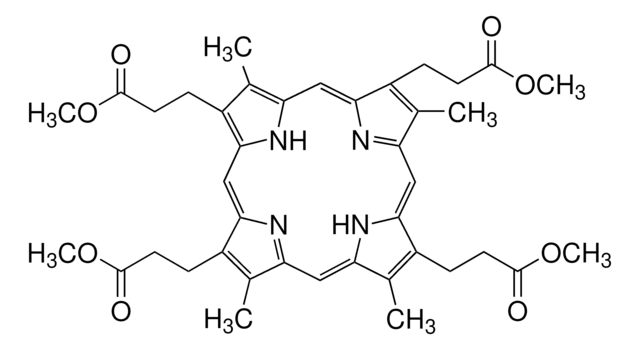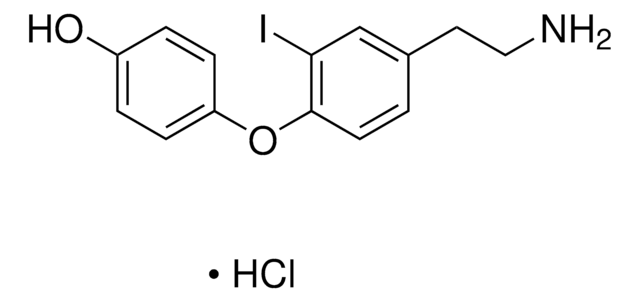Wichtige Dokumente
D0629
3,5-Diiod-L-Thyronin
thyroid hormone analog
Synonym(e):
3,5-Diiod-4-(4-hydroxyphenoxy)-L-phenylalanin, Iodgorgosäure
About This Item
Empfohlene Produkte
Qualitätsniveau
Assay
≥99% (HPLC)
Form
powder
Methode(n)
ligand binding assay: suitable
Farbe
white to off-white
mp (Schmelzpunkt)
255 °C
Lagertemp.
−20°C
SMILES String
N[C@@H](Cc1cc(I)c(Oc2ccc(O)cc2)c(I)c1)C(O)=O
InChI
1S/C15H13I2NO4/c16-11-5-8(7-13(18)15(20)21)6-12(17)14(11)22-10-3-1-9(19)2-4-10/h1-6,13,19H,7,18H2,(H,20,21)/t13-/m0/s1
InChIKey
ZHSOTLOTTDYIIK-ZDUSSCGKSA-N
Suchen Sie nach ähnlichen Produkten? Aufrufen Leitfaden zum Produktvergleich
Biochem./physiol. Wirkung
H-Sätze
P-Sätze
Gefahreneinstufungen
Aquatic Chronic 3
Lagerklassenschlüssel
11 - Combustible Solids
WGK
WGK 3
Persönliche Schutzausrüstung
dust mask type N95 (US), Eyeshields, Faceshields, Gloves
Hier finden Sie alle aktuellen Versionen:
Besitzen Sie dieses Produkt bereits?
In der Dokumentenbibliothek finden Sie die Dokumentation zu den Produkten, die Sie kürzlich erworben haben.
Kunden haben sich ebenfalls angesehen
Unser Team von Wissenschaftlern verfügt über Erfahrung in allen Forschungsbereichen einschließlich Life Science, Materialwissenschaften, chemischer Synthese, Chromatographie, Analytik und vielen mehr..
Setzen Sie sich mit dem technischen Dienst in Verbindung.











